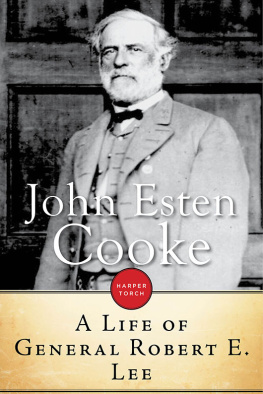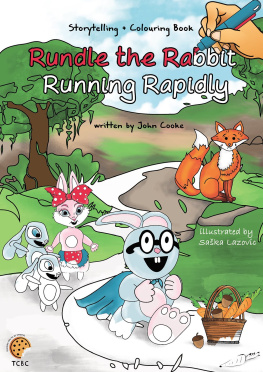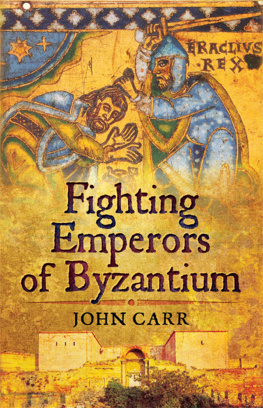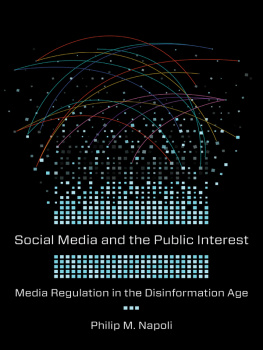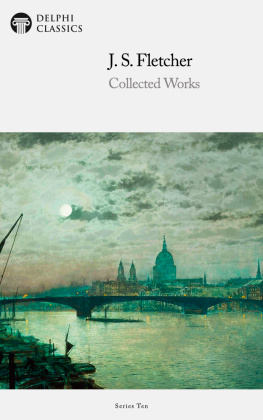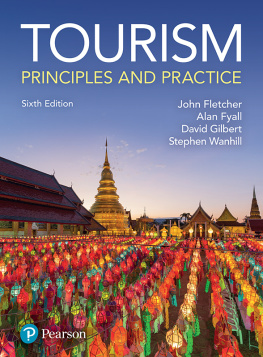The Emperors Guest 194245
The
Emperors Guest
194245
JOHN FLETCHER-COOKE
For my children Charles, Richard and Gillian and to M.L.B.
Without whose encouragement
the book would have never have been written.
First published in 1971 by Hutchinson & Co. Ltd
Republished in 1972 and 1994 by Leo Cooper
Published in Great Britain in 2013 by
Pen & Sword Military
an imprint of
Pen & Sword Books Ltd
47 Church Street
Barnsley
South Yorkshire
S70 2AS
Copyright John Fletcher-Cooke, 1971, 1972, 1994, 2013
The right of John Fletcher-Cooke to be identified as author of this work has
been asserted by him in accordance with the Copyright, Designs and
Patents Act 1988.
ISBN:- 978-1-78340-072-0
Every effort has been made to contact the copyright holder of this work.
Pen and Sword would be grateful for any information concerning the authors estate.
Please contact us with any information that you have.
A CIP catalogue record for this book is available from the British Library.
All rights reserved. No part of this book may be reproduced or transmitted in any
form or by any means, electronic or mechanical including photocopying, recording
or by any information storage and retrieval system, without permission from the
Publisher in writing.
Printed and bound in the UK by CPI Group (UK) Ltd, Croydon, CRO 4YY
Pen & Sword Books Ltd incorporates the Imprints of Pen & Sword Aviation,
Pen & Sword Family History, Pen & Sword Maritime, Pen & Sword Military, Pen
& Sword Discovery, Wharncliffe Local History, Wharncliffe True Crime,
Wharncliffe Transport, Pen & Sword Select, Pen & Sword Military Classics, Leo
Cooper, The Praetorian Press, Remember When, Seaforth Publishing
and Frontline Publishing.
For a complete list of Pen & Sword titles please contact
PEN & SWORD BOOKS LIMITED
47 Church Street, Barnsley, South Yorkshire, S70 2AS, England
E-mail: enquiries@pen-and-sword.co.uk
Website: www.pen-and-sword.co.uk
Contents
Foreword
by
Field-Marshall Lord Bramall, GCB, OBE, MC
This book is one of the classics of prisoner of war literature. To describe any book as a classic is not something which should be done lightly, for the word is easily devalued; nonetheless it is an appropriate term for The Emperors Guest. Sir John Fletcher-Cooke was a man of great distinction, as his post-war career in the Colonial Service and as a Member of Parliament amply demostrated, but in some ways the most remarkable years of his life were those he spent as a prisoner of war, and this book is a still more remarkable chronicle of that time.
Becoming a prisoner of war must have been, for everyone who suffered the fate, a traumatic and frightening experience. Naturally, individuals reacted differently but few can have accepted their situation and responded to it as effectively as Fletcher-Cooke. In this he was helped by the companionship of his fellow prisoners, and most particularly by his diary, in which he recorded the events around him and his own reactions. The diary formed the source for the book, written 25 years later, and gives an immediacy and vividness to his picture of events. The most remarkable aspect, however, is the balance which the author displayed, both at the time and late on relfection. His realization that there were good and bad Japanese, just as there were good and bad prisoners, was a rare insight, displaying a tolerance of view which many of his fellow prisoners could not, or did not want to emulate. Throughout he retained his awareness that his captors were fellow human beings, even when they behaved inhumanely, and it was this that led him to want to meet them again after the war something which he achieved and recorded in his Epilogue.
Ultimately, this balance and the all-round nature of the picture is what gives the book its lasting value. We live in a world in which hatred and hostility flourish, and Fletcher-Cooke experienced more than his fair share of both, but if there are lessons to be learnt from history then books such as this must continue to be read.
This is one mans story covering the four years December 1941 to December 1945.
Many thousands of my fellow-countrymen, as well as many thousands of our allies, had experiences similar to those recorded in this book.
Many of these suffered much more grievously than I ever did; many, too, never survived to tell their tales. Some who did survive were so damaged in body or mind that they could never have recorded all that they had endured, even if they had wanted to.
Throughout this period I kept very full diaries, notes and records of various kinds. These included letters which I wrote in captivity but which were never sent and, indeed, have never been seen by any eyes but my own. There are a number of references to these papers, and to my methods of concealing them, in the text of this book.
The last entry in these diaries is dated the 10th October 1945. It was written, many thousands of feet above the earth, in a Halifax bomber in which I was flying over the Hump from Kunming in the Chinese Province of Yunnan to Calcutta in India.
Quite deliberately I never looked at any of these papers until I started to write this book just after Christmas, 1969.
In particular, I specifically refrained from perusing them before I paid my visit to Japan in August 1969 to which reference is made in the Epilogue. I was particularly anxious to meet my captors and to visit the camps without any prejudices, to which a re-reading of my diaries might have given rise.
The Epilogue was written in November 1969, after my visit to Japan and before I had looked at my diaries. A shortened form of this Epilogue appeared as an article published in the Sunday Express, London, of the 7th December 1969.
I trust that I have been fair to my fellow P.o.W.s, and to our captors, in all that I have written. There were good and bad Japanese just as there were good and bad P.o.W.s.
To the best of my knowledge and belief all the incidents referred to in this book occurred as described. Where they were not based on personal experience they were derived from information given to me, the veracity of which I had no reason to doubt.
It is possible that some, but not many, of the incidents described have been transposed in time.
The events of the last few weeks at Miyata (.
In the light of my own experiences and in the light of the events referred to above I am firmly persuaded that few, if any, of the P.o.W.s would have got out of Japan alive if the atomic bombs had not been dropped on Hiroshima and Nagasaki.
I say this for two reasons. In the first place the dropping of these terrible bombs re-kindled in the minds of the Japanese, and particularly in the minds of our guards, that dormant and indefinable fear of the P.o.W.s which they all possessed. The Japanese never began to understand us and it is natural to fear what one cannot understand (see page ).
More important still, the dropping of the atomic bombs, and the threats of more to come, were the decisive factors which led the Japanese to accept capitulation. Did not the Emperor himself say, before the second bomb was dropped on Nagasaki, that Japan could not afford a repetition of Hiroshima?
It was these devastating bombs which ensured that when, finally, the Allies landed in Japan the invasion was unopposed. If the Allies had been forced to make an opposed landing the Japanese would undoubtedly have liquidated the P.o.W.s, if for no other reason than that to guard and feed them would have interfered with the task of repelling the invaders, polluting the sacred soil of Nippon.




